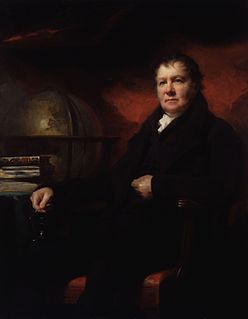A Quote by Sallust
That power of the Gods which orders for the good things which are not uniform, and which happen contrary to expectation, is commonly called Fortune, and it is for this reason that the Goddess is especially worshipped in public by cities; for every city consists of elements which are not uniform.
Related Quotes
Fear in sooth holds so in check all mortals, becasue thay see many operations go on in earth and heaven, the causes of which they can in no way understand, believing them therefore to be done by power divine. for these reasons when we shall have seen that nothing can be produced from nothing, we shall then more correctly ascertain that which we are seeking, both the elements out of which every thing can be produced and the manner in which every thing can be produced in which all things are done without the hands of the gods.
The same thing is to be understood of all bodies, revolved in any orbits. They all endeavour to recede from the centres of their orbits, and were it not for the opposition of a contrary force which restrains them to and detains them in their orbits, which I therefore call Centripetal, would fly off in right lines with a uniform motion.
Whoso turns his attention to the bitter strifes of these days and seeks a reason for the troubles that vex public and private life must come to the conclusion that a fruitful cause of the evils which now afflict, as well as of those which threaten us, lies in this: that false conclusions concerning divine and human things, which originated in the schools of philosophy, have crept into all the orders of the state, and have been accepted by the common consent of the masses.
On the geometric level, we see certain physical elements repeated endlessly, combined in an almost endless variety of combinations. It is puzzling to realize that the elements, which seem like elementary building blocks, keep varying, and are different every time that they occur. If the elements are different every time that they occur, evidently then, it cannot be the elements themselves which are repeating in a building or town; these so-called elements cannot be the ultimate "atomic" constituents of space.
Prince William looks good in uniform and Man-at-Hackett black and white tie (he has grown up wearing it constantly); less certain in his suits, which sometimes look borderline archaic; and variable in casual. But completely comfortable in the Sloane uniform of non-designer jeans and chocolate-brown suede loafers. He'll look fine in Boden.
The love, more especially, which is concerned with the good, and which is perfected in company with temperance and justice, whether among gods or men, has the greatest power, and is the source of all our happiness and harmony, and makes us friends with the gods who are above us, and with one another.
There are some who maintain that trade will regulate itself, and it is not to be benefited by the encouragements or restraints of government. Such persons will imagine that there is no need of a common directing power. This is one of those wild speculative paradoxes, which have grown into credit among us, contrary to the uniform practice and sense of the most enlightened nations.
Education is here placed among the articles of public care, not that it would be proposed to take its ordinary branches out of the hands of private enterprise, which manages so much better all the concerns to which it is equal, but a public institution can alone supply those sciences which, though rarely called for, are yet necessary to complete the circle, all the parts of which contribute to the improvement of the country, and some of them to its preservation.
Amid all the revolutions of the globe, the economy of Nature has been uniform, ... and her laws are the only things that have resisted the general movement. The rivers and the rocks, the seas and the continents, have been changed in all their parts; but the laws which direct those changes, and the rules to which they are subject, have remained invariably the same.







































